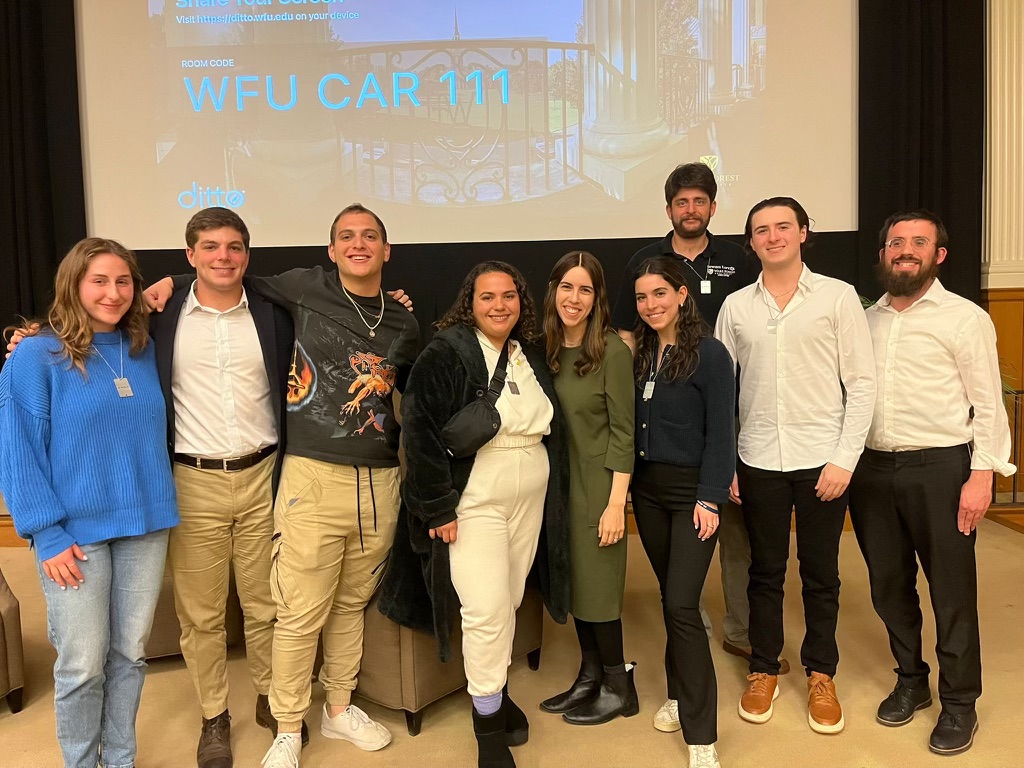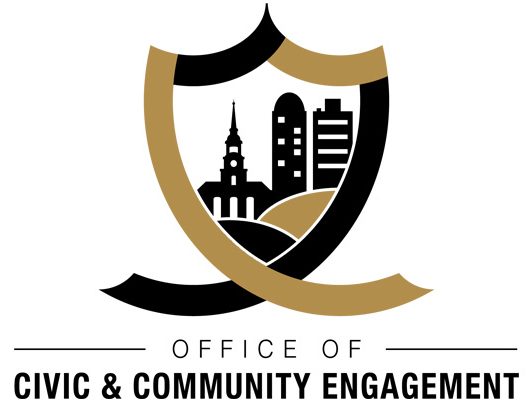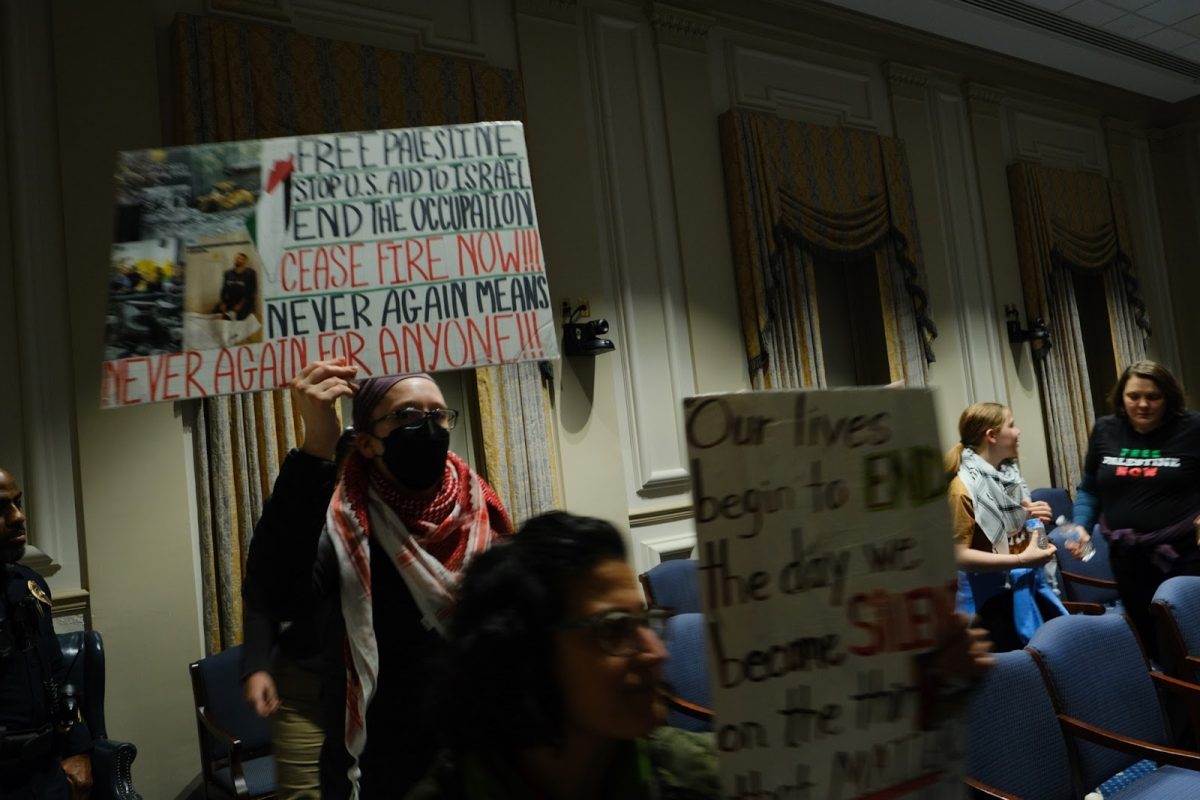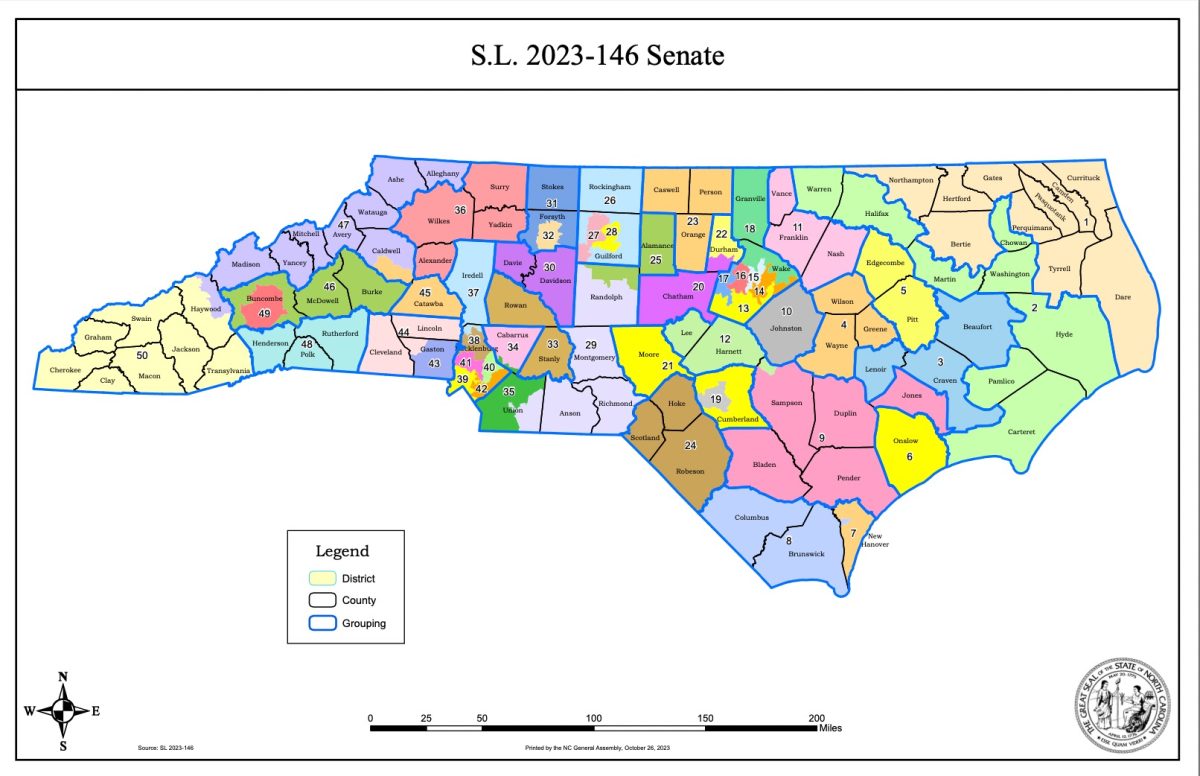The Code of Conduct revisions that are set to be codified this coming spring have caused an outpouring of response from students and faculty across Wake Forest.
Revisions to the Student Handbook began in the fall of 2016 with Deans Matt Goldstein and Adam Clifford at the forefront; however, articles 12 and 13, outlining criteria for unacceptable student behavior on campus, have been on the frontlines of debates as to whether or not these revisions limit students’ free speech.
Article 12, entitled “Disorderly Conduct,” states that behavior that is “disorderly, lewd or indecent” will not be tolerated on campus.
Furthermore, article 13 outlines the specific kinds of conduct that will be subject to prosecution by the university: “substantial disruption or obstruction of any university activity and/or other authorized non-university activities which occur on or off campus.”
Some of these “disruptive or obstructive” actions include, but are not limited to, “preventing an instructor or speaker from giving a lecture, by means of shouts, interruptions, chants or other verbal or audible means; interfering with the audience’s view of an instructor or speaker; preventing members of the university community from participating in class; disrupting use of or access to libraries or residential housing; obstructing passage within, into, or out of buildings; interfering with prospective student or employer recruitment or university activities for alumni; and preventing free pedestrian or vehicular movement onto or about campus.”
What seems to be the general concern amongst students regarding these changes is the language of the articles.
Senior Milka Tewolde said, “The part that worries me the most is how ambiguous the policies are. What exactly would constitute as ‘disorderly conduct’ and how vast is the spectrum by which these terms will be interpreted?”
She recalled the chalking incident that occurred her freshmen year in which several students displayed their emotional response to a “blackface” fraternity party by writing verbal outlets on the lower and upper quad.
The section of the revisions that inhibit students from “interfering with prospective students or employer recruitment” seems to her to be “a direct response to the chalking of the quad on Prospective Students’ Day,” said Tewolde.
Senior Jenny Mai expresses similar concerns specifying the negative implications that can arise from the arbitrarily written conditions.
Mai is concerned that the revisions target free speech and police behaviors that challenge the university.
“The writing in the policy is vague, subjective, and can be interpreted in many different ways” Mai said. “Vague and subjective policies can be implemented in a variety of ways and leave a lot of room for implicit bias — bias that mostly targets marginalized communities.” “From my perspective, there are many actions and decisions that the university makes that are ‘disorderly,’ ‘lewd’ and ‘indecent,’ towards communities of color” Mai said. “Adding policies that limit free speech limits the ways in which students can call out a flawed system. Protesting has been one of the most effective ways students have pushed for change on this campus. Take that away and there will be no accountability, unless a student is willing take the backlash for speaking out.”
The last point of contention in article 13, which prohibits students from “preventing free pedestrian or vehicle movement onto or about campus,” has also caused concern.
The nature of a protest is the collective gathering of individuals in a central location.
Students have raised concern that protests and the blockage of walkways are essentially mutually inclusive in a lot of cases. They worry this restriction drastically impacts students’ mobility, voice and power when it comes to campus demonstrations.
Junior Char Van Schenck also expressed concerns that the policy would disproportionately affect those with left leaning politics because of their interest in changing the system.
“As a liberal arts school, Wake Forest must allow for young people to engage in protest as a key site in which they can form a political identity,” Van Schenck said. “One of the most important tenets of a democracy is that very right.”
Melissa Harris-Perry, the executive director of the Pro Humanitate Institute and founding director of the Anna Julia Cooper Center, has been very outspoken on social media in response to the proposed revisions.
Harris-Perry took to her Twitter and Instagram accounts and responded explicitly against the policy changes by posting a screenshot of the revisions along with an image of her middle fingers up.
“I’m both confused and concerned about why the revisions would move in this direction,” Harris-Perry said.
“The idea that the university would put itself in an adversarial position vis à vis its students when it comes to students exercising what is clearly their First Amendment rights, I think is very appalling,” Harris-Perry said. “If you don’t like the ideas that are being presented in the marketplace, you have the responsibility to present additional ideas in the marketplace. You’re job isn’t to silence people in the marketplace.”
Nevertheless, community feedback is open and encouraged on the Wake Forest website under Student Conduct until December 1 2017.
There are also listening sessions being held from Sept. 19 through Oct. 17 that specifically address each of the revisions. The one on prohibited behavior is on September-26 at 8:00pm.
Students may use this time to voice their concerns in the hopes of making an impact that could change campus discourse in the coming years.



















